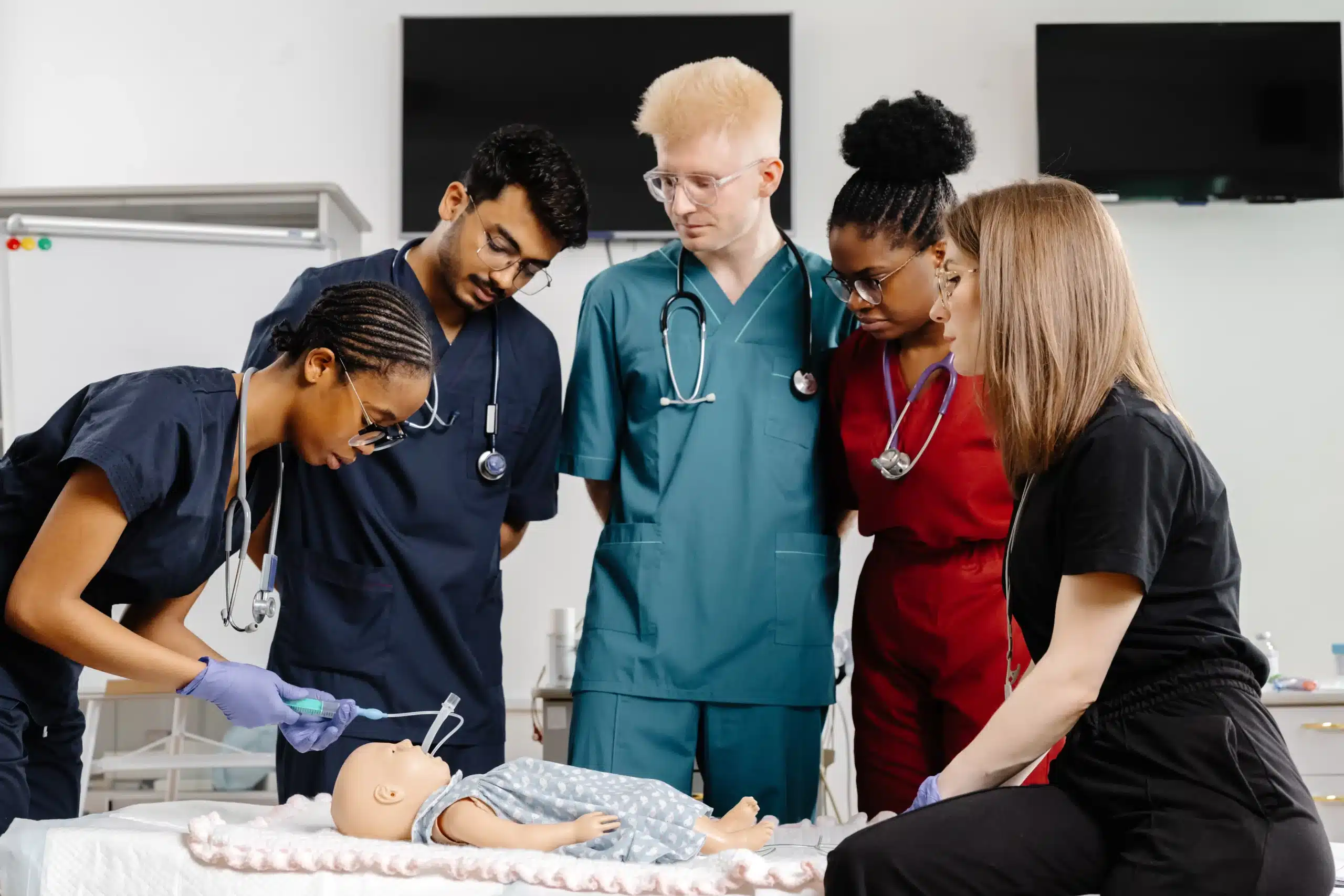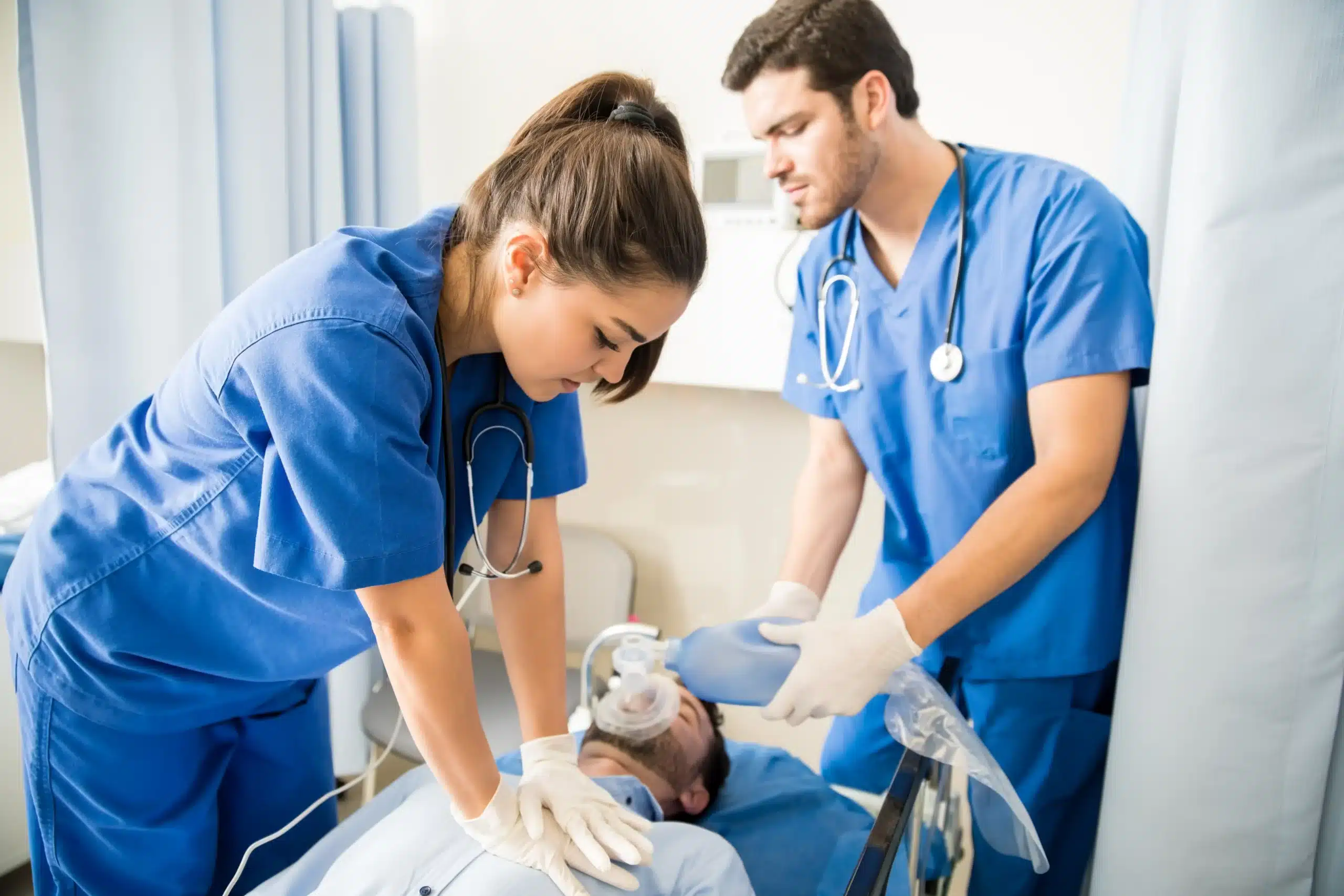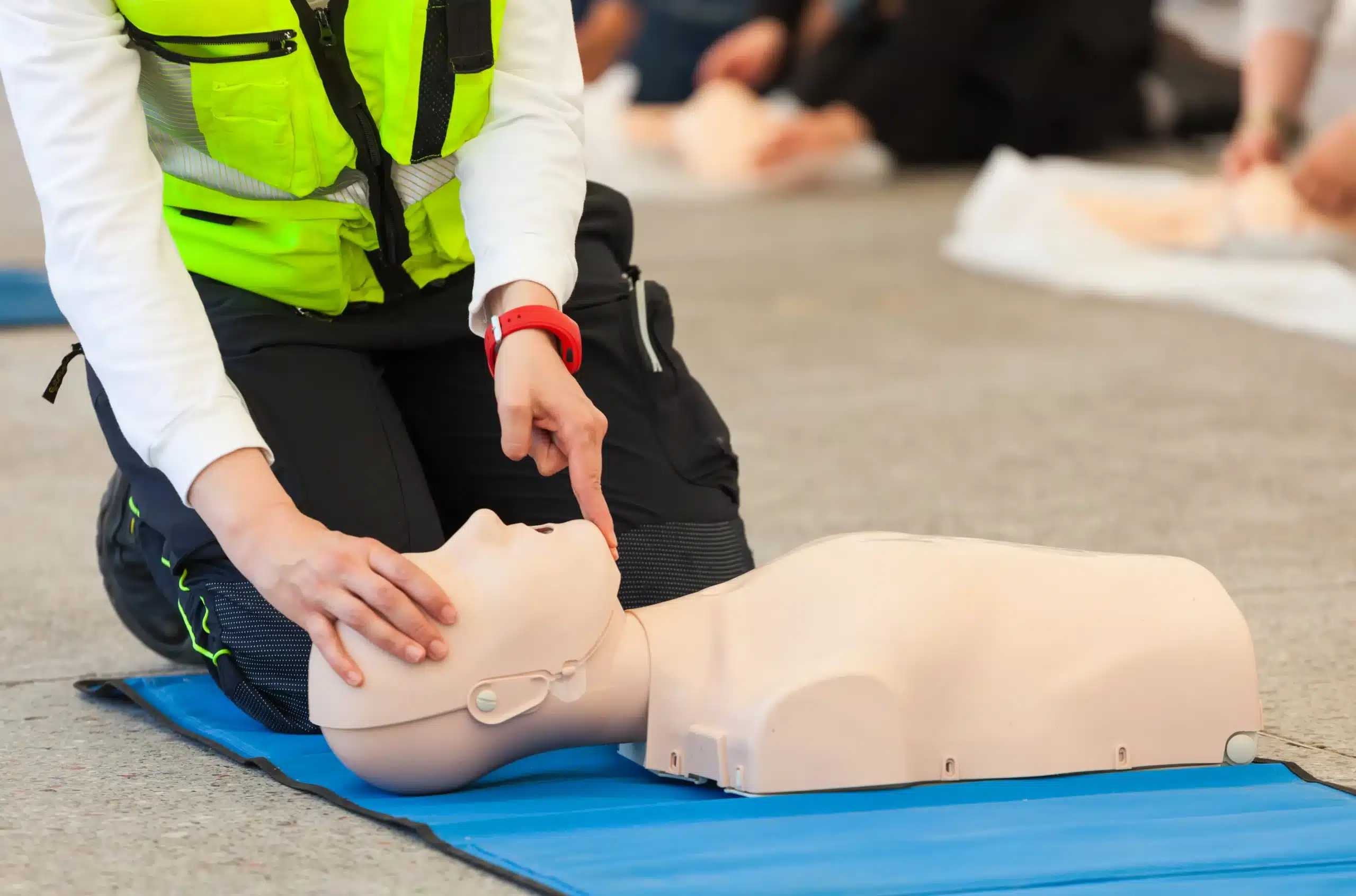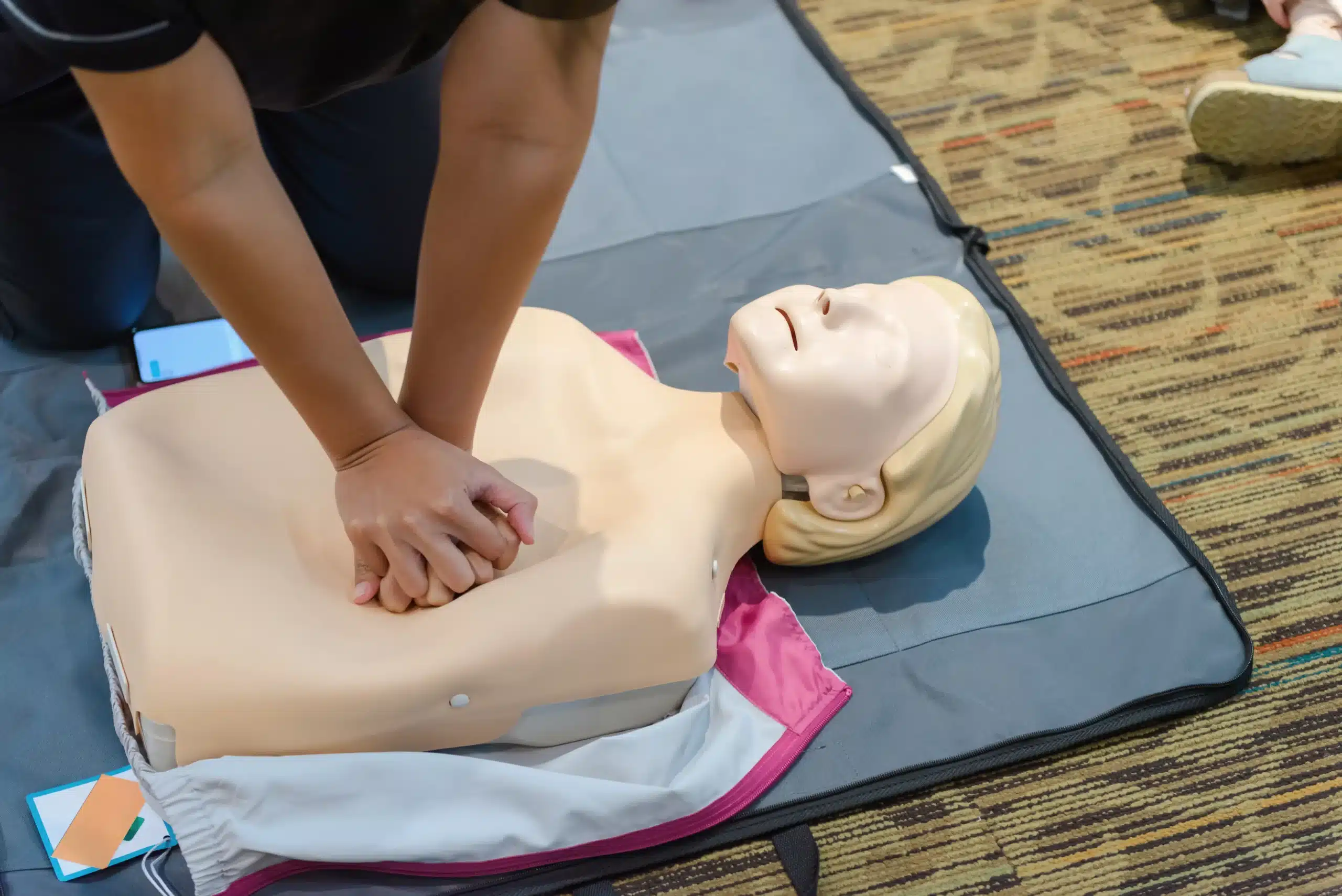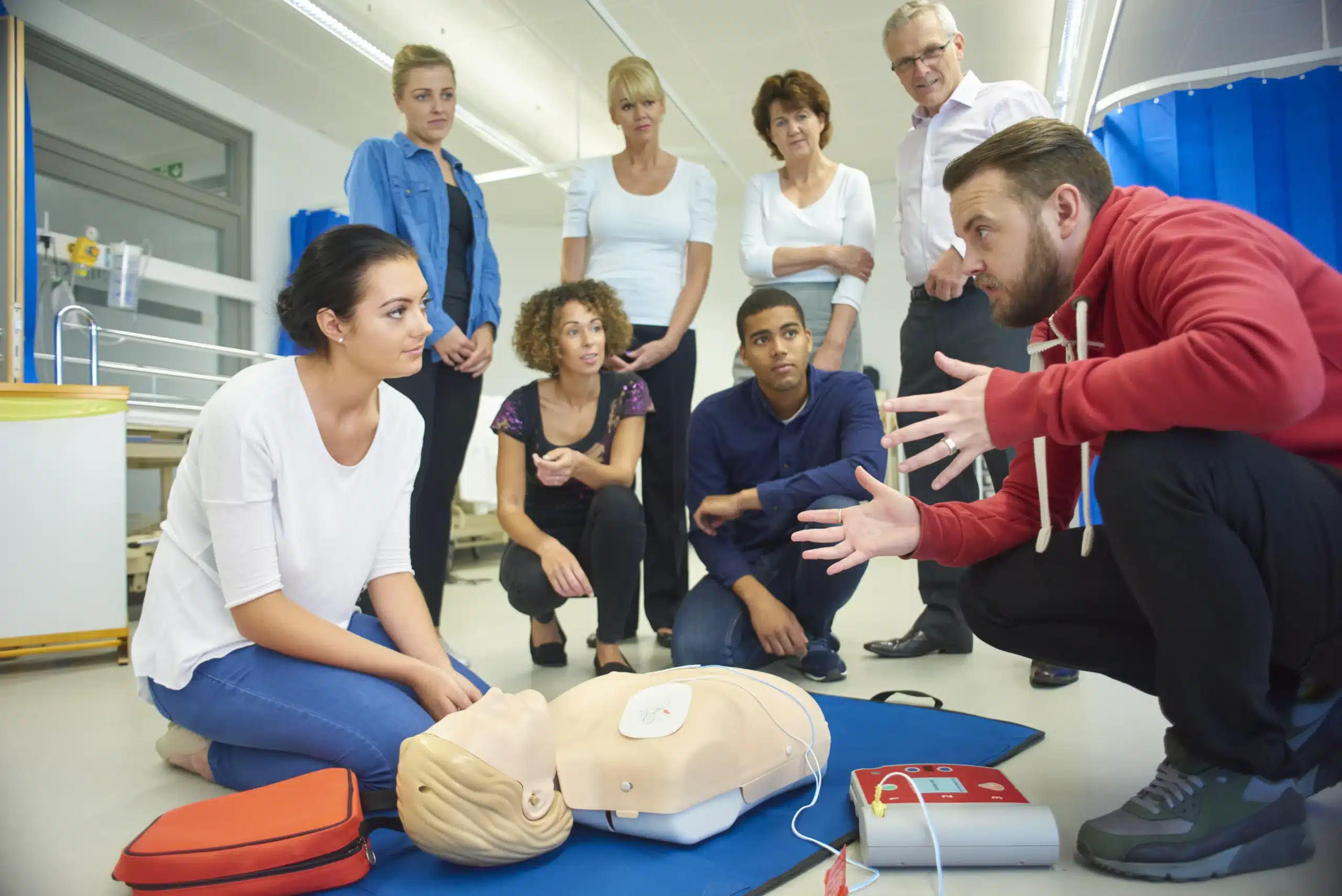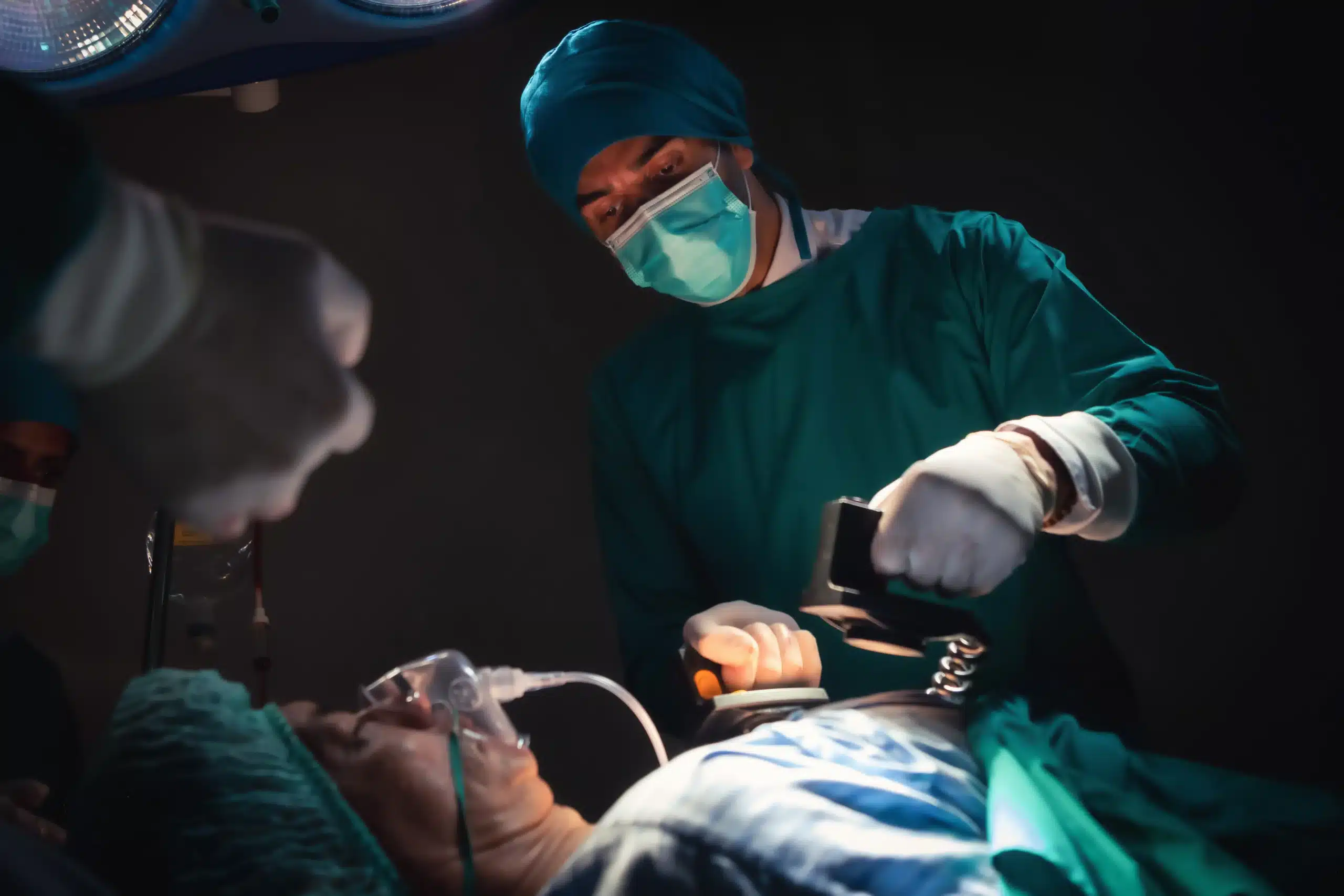In the dynamic world of healthcare, especially in a bustling hub like the San Francisco Bay Area, being prepared for any medical emergency is paramount. Advanced Cardiovascular Life Support (ACLS) provider training equips healthcare professionals with the skills to manage complex cardiovascular emergencies effectively. This guide will provide you with a comprehensive overview of ACLS provider training in the SF Bay Area, covering everything from the core curriculum and course formats to certification costs and renewal options. We’ll also delve into the essential skills and knowledge you’ll gain, discuss the challenges you might face, and highlight the significant career benefits of ACLS certification. Get ready to take your healthcare career to the next level.
Key Takeaways
- ACLS is a must-have for healthcare providers: It builds on basic life support skills, giving you the knowledge to handle serious cardiac emergencies. Look for a trusted training center like Safety Training Seminars.
- Pick the right ACLS course format for you: In-person, online, and hybrid options are available. Think about cost, location, and instructor experience when making your choice.
- Stay current with your ACLS certification: Keep track of renewal dates and continue learning to keep your skills sharp. Regularly review the latest guidelines to provide top-notch patient care.
What is ACLS Provider Training?
Advanced Cardiovascular Life Support (ACLS) training equips healthcare professionals with the skills to manage cardiovascular emergencies. It’s a vital part of emergency medical care, giving providers the knowledge they need to respond effectively to life-threatening situations. ACLS certification goes beyond basic life support, focusing on advanced techniques and interventions for adult patients. If you’re in Northern California and looking for training options, take a look at our ACLS classes.
ACLS vs. BLS: Key Differences
While both ACLS and BLS address life-threatening emergencies, there are key differences. Basic Life Support (BLS) focuses on immediate interventions like CPR and using an AED. ACLS builds upon these BLS skills, providing more advanced training for managing complex cardiovascular emergencies. Think of it this way: BLS is the foundation, while ACLS adds specialized knowledge and techniques. For a deeper dive into these differences, resources like Cascade Training offer helpful explanations.
Who Needs ACLS Certification?
ACLS certification is crucial for any healthcare provider who might respond to a cardiac emergency. This includes physicians, nurses, paramedics, and other professionals in critical care settings. If your role involves potential cardiac emergencies, ACLS training is not just beneficial—it’s often a requirement. Articles like this one on ACLS myths can offer further insights into who benefits from this training. For those in the San Francisco Bay Area, our low price guarantee ensures affordable options for your certification needs.
Top ACLS Provider Training Options in the SF Bay Area
Finding the right ACLS provider can make all the difference in your training experience. Here’s a rundown of some reputable options in the San Francisco Bay Area:
Safety Training Seminars
Safety Training Seminars offers a convenient way to get your ACLS certification. They’re a woman-owned business and an official American Heart Association Training Center, providing various courses, including BLS, PALS, CPR, and First Aid. They offer classes seven days a week in San Francisco and surrounding cities, making scheduling a breeze. Their focus is on high-quality, affordable training. Check out their low price guarantee for more information.
HeartStart CPR
HeartStart CPR focuses specifically on ACLS training for healthcare professionals in the Bay Area. As an authorized AHA training site, they offer both initial certification and renewal courses. If you’re looking for a provider dedicated to ACLS, HeartStart CPR is worth checking out.
Bay Area CPR
Bay Area CPR provides a wide range of AHA-certified courses, from standard CPR and BLS to ACLS, PALS, and even Wilderness First Aid. With multiple locations across the Bay Area, including San Francisco, Daly City, San Mateo, and Oakland, they offer flexibility and convenience. Their comprehensive approach makes them a solid choice for various certification needs. See their website for upcoming courses.
Stanford Health Care
Stanford Health Care, a well-respected name in healthcare, also offers ACLS training. As you might expect, their program emphasizes a high standard of care and is geared toward ensuring healthcare providers have the skills to handle cardiac emergencies effectively. If aligning with a prestigious institution is important to you, Stanford Health Care is a strong contender. Learn more about their training programs.
Rescue with CPR
Rescue with CPR offers a focused selection of AHA-certified courses, including ACLS, BLS, PALS, and NRP. They emphasize nationally recognized certifications, ensuring your training meets industry standards. This provider is a good option if you’re looking for a streamlined approach to essential life support certifications. Visit their site to explore their offerings.
Superior Life Support
Superior Life Support takes a blended learning approach to ACLS training, combining online coursework with in-person classroom sessions. This format offers flexibility for those with busy schedules. They also offer instructor-level training for those looking to teach ACLS courses themselves. Explore their blended learning options for more details.
ACLS Certification & Renewal: Costs & Options
Getting ACLS certified or recertified requires an investment, so understanding the costs involved is essential. Let’s break down the typical expenses and explore ways to find the best value.
Initial Certification Costs
For first-time ACLS certification, expect to pay between $200 and $300. This price usually covers the comprehensive training program, including study materials, instruction, and testing. This initial investment equips you with life-saving skills, making it well worth the cost. For specifics, check out our ACLS course page.
Renewal Costs
Renewing your ACLS certification is typically more affordable than initial certification, often ranging from $150 to $250. Renewal courses are streamlined, focusing on refreshing your knowledge and covering any updated guidelines. Our RQI classes offer a fast and efficient way to renew your certification.
Factors Affecting Price
Several factors can influence the final price of your ACLS training. The course format (in-person vs. online or blended learning) plays a role, as does the training provider and their location. Some providers may offer discounts for group registrations or bundled courses. Safety Training Seminars offers a low price guarantee, ensuring you’re getting competitive pricing.
Available Discounts
It’s always a good idea to look for training providers that offer discounts. Safety Training Seminars frequently has promotions and competitive pricing on CPR and first-aid classes. Contact us directly through our contact page to inquire about current discounts and special offers. We’re committed to making high-quality ACLS training accessible and affordable.
ACLS Course Formats & Time Commitment
Finding the right ACLS course format is key to balancing your schedule and learning style. Let’s break down the common options: in-person, online, and hybrid courses. We’ll also cover the typical time commitment for initial certification and renewal.
In-Person Training
In-person ACLS training offers a hands-on, immersive learning experience. It’s a great option if you thrive in a traditional classroom setting and value direct interaction with instructors and peers. This format allows for immediate feedback and real-time clarification on any questions you may have. Safety Training Seminars offers in-person ACLS courses in San Francisco, providing a structured environment for mastering essential skills.
Online Options
For those with busy schedules or who prefer self-paced learning, online ACLS courses offer a flexible alternative. Many providers, including Bay Area CPR, offer online components that cover the theoretical aspects of ACLS. This allows you to learn the material at your own speed and convenience, often through interactive modules and online resources.
Hybrid Courses
Hybrid ACLS courses combine the flexibility of online learning with the practical application of in-person skills sessions. You’ll typically complete the cognitive portion online, then attend a shorter in-person session to practice and demonstrate your skills. This format is ideal for those who want a more flexible schedule while still benefiting from hands-on training. This guide offers more information on hybrid and other ACLS course options in San Francisco.
Duration: Initial Certification vs. Renewal
The time commitment for ACLS training varies depending on whether you’re pursuing initial certification or renewal. Initial ACLS certification typically requires around 12 hours to complete, covering a comprehensive curriculum. Renewal courses, designed for those already holding a valid ACLS certification, are generally shorter, taking approximately six hours. For more details on the time commitment for different ACLS courses, including the HeartCode program, check out Bay Area CPR’s resources. This streamlined approach allows you to efficiently update your skills and knowledge.
What to Expect During ACLS Training
Getting your ACLS certification is a rewarding experience, but it helps to know what awaits you. Here’s a breakdown of a typical ACLS course:
Core Curriculum
ACLS certification involves a comprehensive training program equipping healthcare professionals with the knowledge and skills to manage cardiovascular emergencies. This includes everything from cardiac arrest and stroke to acute coronary syndromes. You’ll learn algorithms for treating these conditions, as well as providing effective basic and advanced life support. A solid understanding of this core curriculum is essential for passing the exams and providing competent patient care. For more information, check out the American Heart Association’s BLS resources.
Hands-On Practice
Safety Training Seminars emphasizes hands-on learning, providing practical experience with essential skills like high-quality CPR, airway management, and rhythm recognition. You’ll work with realistic simulations and mannequins to practice these techniques in a safe and controlled environment. This hands-on training is crucial for building confidence and proficiency in performing ACLS interventions. Safety Training Seminars offers a modern and efficient way for medical professionals in San Francisco to get their certifications.
Exams (Written & Practical)
To earn your ACLS certification, you’ll need to pass both a written exam and a practical skills test. The written exam assesses your understanding of the core curriculum, while the practical test evaluates your ability to perform ACLS interventions correctly. The instructors will prepare you thoroughly for both exams. You’ll receive your official American Heart Association certification card the same day you complete the course. Safety Training Seminars even offers a low price guarantee.
Team Dynamics & Communication
ACLS scenarios often involve working as part of a team, so effective communication is key. During your training, you’ll participate in simulated scenarios that emphasize teamwork, communication, and leadership skills. You’ll learn how to clearly communicate patient information, delegate tasks, and work together efficiently in high-pressure situations. This focus on team dynamics is essential for providing the best possible patient care during real-world emergencies. For more information on CPR training in Northern California, visit our directory. You can also contact us with any questions.
Essential ACLS Skills & Knowledge
ACLS builds upon basic life support (BLS) skills, giving healthcare providers the advanced knowledge they need to manage life-threatening cardiovascular emergencies. Let’s look at the core components of ACLS training:
High-Quality CPR
High-quality CPR is the foundation of successful resuscitation. In ACLS, providers refine their CPR technique, focusing on effective chest compressions, proper ventilation, and minimizing interruptions. This focus on high-quality CPR ensures adequate blood flow and oxygen delivery to vital organs during cardiac arrest. Our ACLS Certification guide reinforces the importance of consistent, high-quality CPR as the basis for advanced life support.
Recognizing Cardiac Arrest & Arrhythmias
ACLS teaches healthcare professionals to quickly recognize and interpret cardiac rhythms. This includes identifying arrhythmias, such as ventricular fibrillation and pulseless ventricular tachycardia, and understanding what they mean for treatment. Accurate rhythm recognition is crucial for making informed decisions about defibrillation, medication, and other interventions. Real-life case studies show how important quick and accurate rhythm identification is for effective ACLS.
Using AEDs
Automated external defibrillators (AEDs) are essential for managing cardiac arrest. ACLS training covers the proper use of AEDs, including electrode placement, analyzing rhythms, and delivering shocks. Providers learn how to use AEDs seamlessly during resuscitation, maximizing the chances of successful defibrillation. Reading about common misconceptions about ACLS can help clarify the role of AEDs in emergency medical care.
ACLS Pharmacology Basics
Pharmacology is a key part of ACLS. Providers learn about the medications used in cardiac emergencies, including their uses, dosages, and potential side effects. Understanding how to use medications like epinephrine, amiodarone, and atropine is essential for effectively managing various cardiac arrhythmias and other cardiovascular conditions. Avoiding common ACLS mistakes often comes down to understanding pharmacology and medication administration guidelines.
Choosing an ACLS Training Provider
Finding the right ACLS training provider is crucial for a positive and effective learning experience. Here’s what to consider:
Accreditation & Certification
First and foremost, verify the provider’s accreditation and certification. Ensure they are affiliated with a recognized organization like the American Heart Association (AHA). This guarantees the training aligns with the latest AHA guidelines and results in a valid, widely accepted certification card. Safety Training Seminars, for example, is a woman-owned AHA Training Center, offering the assurance of high-quality, AHA-compliant courses.
Instructor Qualifications
The instructor’s expertise directly impacts how well you grasp the material. Look for providers with experienced, certified instructors with a strong background in ACLS. Safety Training Seminars emphasizes its commitment to providing high-quality instruction throughout Northern California. A knowledgeable instructor can make all the difference in your confidence and competence.
Course Materials & Resources
Up-to-date, comprehensive resources are essential for effective learning. Inquire about the materials used in the course. Do they include the latest treatment protocols and AHA guidelines? A good provider will offer access to current manuals, practice materials, and potentially online resources. The RQI program, a modern and efficient certification process, is a great example of a provider utilizing updated resources. For those seeking convenient and affordable options, consider exploring providers with a low-price guarantee.
Customer Reviews
Reading reviews from past students offers valuable insights. Look for comments about the quality of instruction, the course materials, and the overall learning experience. Did previous students find the training helpful and engaging? Testimonials can offer a glimpse into the real-world impact of a provider’s training. Hearing how others benefited from the course can help you make an informed decision. If you’re in Northern California, you can also consult a local CPR directory for additional provider recommendations. Don’t hesitate to contact us if you have any questions or need further assistance.
Maintaining Your ACLS Certification
Once you’ve earned your ACLS certification, staying current is crucial for providing effective patient care and meeting professional requirements. This involves understanding renewal requirements and committing to continuing education.
Renewal Requirements
ACLS certifications are valid for two years. It’s essential to keep track of your expiration date so you’re always prepared to respond to emergencies. Recertification demonstrates your ongoing commitment to providing high-quality patient care and ensures you stay updated with the latest advancements in ACLS. Don’t let your certification lapse—stay proactive and schedule your renewal course in advance. You can find various ACLS renewal courses throughout the San Francisco Bay Area, including those offered by Safety Training Seminars.
Continuing Education
Even after renewing your certification, continuing education is key to maintaining top-notch ACLS skills. The field of emergency medical care is constantly evolving, so staying informed on the latest ACLS guidelines and updates from the American Heart Association is essential. Whether you’re a nurse, doctor, or other healthcare provider dealing with cardiac emergencies, ongoing ACLS training is crucial for delivering the best possible patient outcomes. Consider subscribing to relevant medical journals, attending workshops, or taking refresher courses to stay sharp and confident in your abilities. Regularly reviewing information on common misconceptions about ACLS can also help reinforce your knowledge and address any gaps in understanding. You can also explore additional resources and training opportunities through Safety Training Seminars.
ACLS Training Benefits for Healthcare Professionals
For healthcare professionals, ACLS training is more than just a certification—it’s a vital skill set and a significant career booster. It equips you with the knowledge and confidence to handle critical cardiac emergencies, ultimately leading to better patient outcomes and enhanced professional growth.
Career Advancement
Having a current ACLS certification opens doors to a wider range of job opportunities. Many healthcare roles, especially in emergency medicine, critical care, and intensive care units, require ACLS certification as a prerequisite. It’s relevant for any healthcare provider who might encounter cardiac emergencies, making you a more valuable asset to any team. Plus, holding an ACLS certification demonstrates a commitment to continuing education and professional development, which can give you an edge in a competitive job market. Master ACLS points out that ACLS training isn’t limited to specific specialties. It shows potential employers that you’re dedicated to providing the highest quality of care, as highlighted by the testimonials on ACLSNow.
Improved Patient Care
At its core, ACLS training is about saving lives. Cascade Training Solutions emphasizes how ACLS prepares healthcare providers to respond effectively in these high-pressure situations. By mastering the skills and protocols taught in ACLS courses, you’ll be better equipped to manage cardiac arrest, identify and treat arrhythmias, and provide other life-saving interventions. This translates to improved patient outcomes and a greater chance of survival for those in your care. Staying up-to-date with the latest advancements in ACLS care is also crucial for providing the best possible patient care. Medtigo explains that ACLS training is crucial for various healthcare providers who regularly deal with cardiac emergencies. Our AHA ACLS classes here at Safety Training Seminars are designed to keep you current. We focus on providing the most current and effective training to help you deliver exceptional patient care.
Overcoming ACLS Training Challenges
ACLS training is rigorous, but manageable. Here’s how to overcome some common hurdles:
Time Management
One of the biggest challenges in ACLS training is managing time, especially given the high-pressure scenarios. Many candidates feel overwhelmed by the pace and the need to perform skills accurately within a limited time. Effective time management strategies are key to success. Before class, review the ACLS course materials and familiarize yourself with the algorithms and protocols. This pre-work lets you focus on mastering the skills during the training itself. During scenarios, practice prioritizing tasks and delegating responsibilities, just like in a real emergency. Consider our RQI classes for a flexible learning experience.
Test Anxiety
Test anxiety is normal, but it can hinder your performance. Many candidates experience stress that can lead to mistakes or a lack of confidence. Preparation is your best defense. Practice the skills and review the material until you feel comfortable. Mock exams can also help you get used to the testing environment and reduce anxiety. Remember, the instructors are there to support you. Don’t hesitate to ask questions or voice concerns. Contact us to learn more about our supportive learning environment at Safety Training Seminars.
Staying Updated with Guidelines
Staying current with the latest American Heart Association guidelines is crucial for providing the best patient care. Regularly reviewing these guidelines can boost your confidence during training. Subscribing to AHA updates or using resources like Cascade Training Solutions can help you stay informed about any changes. This ongoing learning will not only benefit your training but also your future practice as a healthcare provider. Check out our low price guarantee for affordable ACLS training options.
Related Articles
- ACLS Certification in San Francisco: Your Complete Guide – San Francisco Bay Area CPR Classes
- ACLS Certification in Berkeley: Your Complete Guide – San Francisco Bay Area CPR Classes
- ACLS Courses in Sacramento: A Complete Guide
- ACLS Renewal Near Me: A Practical Guide – San Francisco Bay Area CPR Classes
- ACLS Renewal San Jose: Your Complete Guide – San Francisco Bay Area CPR Classes
Frequently Asked Questions
What’s the difference between ACLS and BLS? ACLS (Advanced Cardiovascular Life Support) builds upon the foundational skills of BLS (Basic Life Support). BLS focuses on immediate interventions like CPR and AED use, while ACLS provides advanced training for managing complex cardiovascular emergencies in adults. Think of BLS as the foundation and ACLS as the specialized structure built upon it.
Who should get ACLS certified? Healthcare providers likely to encounter cardiac emergencies, such as physicians, nurses, paramedics, and those in critical care settings, benefit significantly from ACLS certification. It’s often a job requirement for these roles.
How much does ACLS training cost? Initial ACLS certification typically costs between $200 and $300, while renewal courses range from $150 to $250. Several factors can influence the price, including the course format (in-person, online, or blended), the training provider, and location. Look for providers offering discounts or a low-price guarantee.
What are the different ACLS course formats available? ACLS courses are offered in various formats: in-person, online, and hybrid (a blend of online and in-person). In-person classes provide a hands-on, immersive experience, while online courses offer flexibility. Hybrid courses combine online learning with in-person skills sessions.
How can I overcome challenges during ACLS training? Effective time management, managing test anxiety, and staying updated with the latest guidelines are key to overcoming common ACLS training challenges. Prepare in advance by reviewing materials, practicing skills, and familiarizing yourself with the testing environment. Don’t hesitate to ask instructors for support and clarification.


